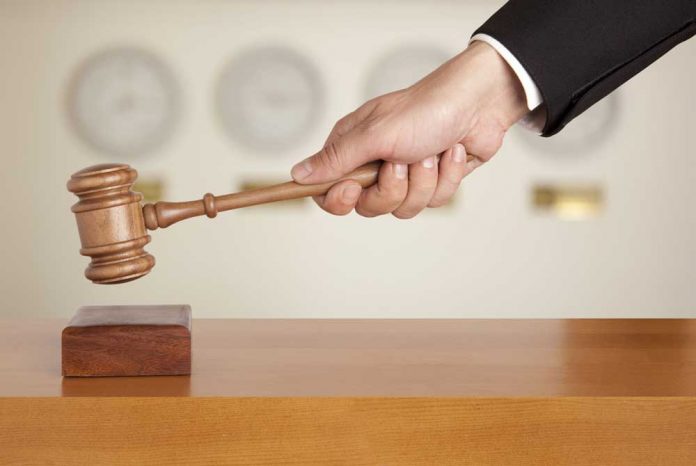This article is written by Sneha Mahawar from Ramaiah Institute of Legal Studies. The article discusses the concept that a tribunal can hear a case without a judicial member.
Table of Contents
Introduction
This article deals with the concept of whether a tribunal can hear a case without the presence of a judicial member. Here, a different aspect of the tribunal takes place as when it is an administrative adjudicatory body carrying out the functions of the judiciary. However, it is also known to us that all the actions carried out by administrative bodies on the behalf of the judiciary have to be within the scope and ambit of law or it will be regarded as void. The administrative body cannot violate the law.
A tribunal is an assembly including one or more judges to conduct judicial business. It is a body outside the scope of the ordinary judiciary system but an integral part of our Indian Constitution. A suit or a case is an attempt to gain an end by legal process. It is a process instituted in a place as authorised by our constitution and statutes for the recovery of a right or claim. A judicial member is an individual who is related to the administration of justice or is related to the court system or the judicial branch of the government. A judicial member can be related to a judgeship or the judiciary or the collective body of judges.
What is administrative law?
Administrative law has been described by Vanderbilt as the most ‘outstanding legal development of the 20th century’. It does not, however, mean that there was no administrative law before this century. For many years, in one form or the other, it has very much been in existence. But in this century, the philosophy of the role and function of the state has undergone a radical change. The governmental functions have multiplied by leaps and bounds.
Today, it is not merely a police state, exercising sovereign functions, but as a progressive democratic state or in other words the welfare state. It seeks to ensure social security, social welfare for the common man, regulates industrial relationships, exercises control over production, manufacture, and distribution of essential commodities, initiates enterprises, attempts to achieve equality for all, and ensures equal pay for equal work.
It is one of the branches of public law. It is the law relating to public administration which determines the organisation, powers, functions, and duties of administrative authorities. It endeavors to provide appropriate methods and techniques to have control over administrative actions. This branch of legal discipline in India was recognised in the middle of the 20th century. It takes care of its citizens from cradle to cremation. All these developments have widened the scope and ambit of administrative law.
What is a tribunal?
In a general sense, a tribunal is referred to as a court of law or a seat of a judicial member (judge). But an administrative law tribunal is referred to as adjudicatory bodies that perform the tasks of the judiciary on its behalf. It is similar to delegated legislation where the legislative bodies delegate their law-making power to the administrative bodies. Here, the adjudicatory bodies carrying out the functions of the judiciary hold quasi-judicial powers and the supreme judicial power is always instilled with the judiciary itself. However, it is also known to us that all the actions carried out by administrative bodies on the behalf of the judiciary have to be within the scope and ambit of law or it will be regarded as void. The administrative body cannot violate the law.
Anathema to the rule of law
Rule of Law
The entire basis of administrative law is the doctrine of the Rule of Law. One of the basic principles of the English Constitution is the Rule of Law. This doctrine is accepted in the United States and India. The entire concept of the Rule of Law was originated by Sir Edward Coke, Chief Justice in James. In a battle against the king, he stated- “The king should be under God and the Law”. This theory was extended by Professor A.V. Dicey in his book “The Law and the Constitution”. Rule of law consists of three principles and all three principles hold an equal amount of importance in the Indian Constitution. Thus, any case heard without a judicial member will be an anathema to the rule of law.
Principles of A.V. Dicey for Rule of Law
According to A.V. Dicey, the Rule of Law embodied three principles:
Supremacy of law
Professor Dicey said ‘Rule of Law’ means absolute supremacy and predominance of regular law and it is opposed to arbitrary power, wide discretionary power on the part of the government. He stated that a man may be punished for a breach of law but can be punished for nothing else. According to this doctrine, no man can be arrested, punished, or be lawfully made to suffer in body or goods except by the due process of law. Dicey described this principle as the central and the most characteristic feature of the common law.
Equality before law
Dicey explained that there must be equal subjection of all classes to the ordinary law of the land administered by the ordinary law courts. He criticised the French legal system of ‘Droit Administratif’ in which there are separate tribunals for cases between the state and its citizens, he said it is the negation of equality. Although it was later found that the system of Droit Administratif was effective and it did not save the officials from punishment but punished the officials. It was made for the welfare of the citizens.
Judge made Constitution or unwritten Constitution
The role of the judiciary is also associated with the Supremacy of courts. A.V. Dicey rightly said that whatever rights are contained in the Constitution or any legislation it can be amended or abrogated, so in the absence of any strong and powerful judiciary, the constitution will have no deterrent effect. Hence, the judicial control of administrative action is the pivot of administrative law.
Case laws of Rule of Law
-
S.G. Jaisinghani vs. Union of India and other
In this case, the Supreme Court observed the absence of arbitrary power is the first essential of the Rule of Law upon which the whole Indian Constitution system is based. On a system governed by the Rule of Law, discretion, when conferred upon executive authorities, must be constrained within clearly defined limits.
-
A.D.M. Jabalpur vs. Shivakant Shukla
This case is popularly known as the Habeas Corpus case. The emergency was proclaimed under Article 359. A large number of persons were arrested under the Maintenance of Internal Security Act, 1971 (MISA) without informing the grounds of arrest. Many of them filed petitions in various High Courts stating that their detention violates Article 21. It was argued on the other side that protection under Article 21 is not available. The M.P. Government through Additional District Magistrate, Jabalpur, and Government of India filed appeals before the Supreme Court.
The Supreme Court held that there is no Rule of Law other than the constitutional Rule of Law. Article 21, if it is suspended, there is no Rule of Law. The Court highlighted the Rule of Law flows from the constitution. And the Indian Constitution holds the supreme position in our country.
-
A.K. Kripak vs. Union of India
In this case, it was held that in a welfare state like India it is inevitable that the jurisdiction of the administrative bodies is increasing at a rapid rate. The concept of our constitution would lose its validity if the instrumentalities of the state are not charged within the duty of discharging their function in a fair and just manner.
-
Bachan Singh vs. State of Punjab
In this case, Justice Bhagvati observed that law must not be arbitrary or irrational and must satisfy the test of reason. To ensure that the law is made in effectiveness and efficiency, the framers of the law shall be made accountable to the people.
Can a tribunal hear a case without a judicial member
A judicial member is an individual who is related to the administration of justice or is related to the court system or the judicial branch of the government. A judicial member can be related to a judgeship or the judiciary or the collective body of judges. It is a body that interprets the law and decides upon cases. It deals with disputes and interprets laws based on disputes, and circumstantial facts and situations.
Rule of Law is a doctrine that is based on Supremacy of law, Equality of law, and Judge made constitution. As per the latest judgement, S. Manoharan vs. The Deputy Registrar delivered and the Rule of Law a case cannot be heard nor decided without a judicial member. The reason behind this fact is that the decision-making power is with the judiciary and due to certain circumstances if the judiciary is delegating its action it is still held responsible for all the outcomes given by the delegated actions. Judiciary is a body with both power and responsibility. The administrative body only enjoys quasi-judicial powers and not judicial powers. Any hearing which takes place only in the presence of a non-judicial member then that hearing will be termed as against the Rule of Law which is a violation of the Indian Constitution. Thus, hearing a case without a judicial member is anathema to the Rule of Law and any such decision delivered will be void ab initio.
S. Manoharan vs The Deputy Registrar
In this case, Justice S.P. Sampath Kumar of the Supreme Court passed an interim order on the decision of Madras High Court and held on 31st October 1985. The interim order was divided into two sub-parts respectively-
- A Judicial Member can only be appointed to the Tribunal after consulting the Chief Justice of India (CJI).
- Every bench of the Tribunal shall consist of one Non-Judicial Member and one Judicial Member. Further, in case of any difference of opinion between them, then the case shall be referred to the Chairman of the Tribunal for the decision.
Thus, as per the judgement of the Supreme Court, it is finalised that no case can be heard without the presence of a judicial member and the judicial member shall be appointed after consulting the Chief Justice of India. Moreover, in case of any difference of opinion, the final word shall be of Chairman of the Tribunal.
Conclusion
Hence, judicial members will play a very important role as the technical members neither have legal knowledge nor practical wisdom. No hearing can take place without the presence of a Judicial member or else it would be termed anathema to the Rule of Law which is violative of the principles of the Indian Constitution and Natural justice. The Rule of Law is a doctrine that is based on three principles- Supremacy of law, Equality of law, and Judge-made constitution. The latest judgement delivered states a case cannot be heard nor decided without a judicial member.
The reason behind this fact is that the decision-making power is with the judiciary and due to certain circumstances if the judiciary is delegating its action it is still held responsible for all the outcomes given by the delegated actions. Judiciary is a body with both power and responsibility. The administrative body only enjoys quasi-judicial powers and not judicial powers. Any hearing which takes place only in the presence of a non-judicial member, then that hearing will be termed as against the Rule of Law which is a violation of the Indian Constitution.
References
- https://www.livelaw.in/columns/tribunals-hearing-cases-without-judicial-members-an-anathema-to-rule-of-law-155342
- https://www.law.com/njlawjournal/2020/05/10/definition-of-tribunal-needed-one-way-or-another/?slreturn=20210118131134
- https://scholarship.law.wm.edu/cgi/viewcontent.cgi?referer=https://www.google.com/&httpsredir=1&article=2311&context=facpubs
- https://www.lexisnexis.com/documents/pdf/20090218103837_large.pdf
- http://www.legalserviceindia.com/legal/article-4265-various-concepts-of-administrative-law-and-judicial-review.html
- https://knowindia.gov.in/profile/the-union/administrative-tribunals.php#:~:text=Administrative%20Tribunals%20Act%20owes%20its,to%20the%20public%20service%20and
LawSikho has created a telegram group for exchanging legal knowledge, referrals and various opportunities. You can click on this link and join:
 Serato DJ Crack 2025Serato DJ PRO Crack
Serato DJ Crack 2025Serato DJ PRO Crack











 Allow notifications
Allow notifications


